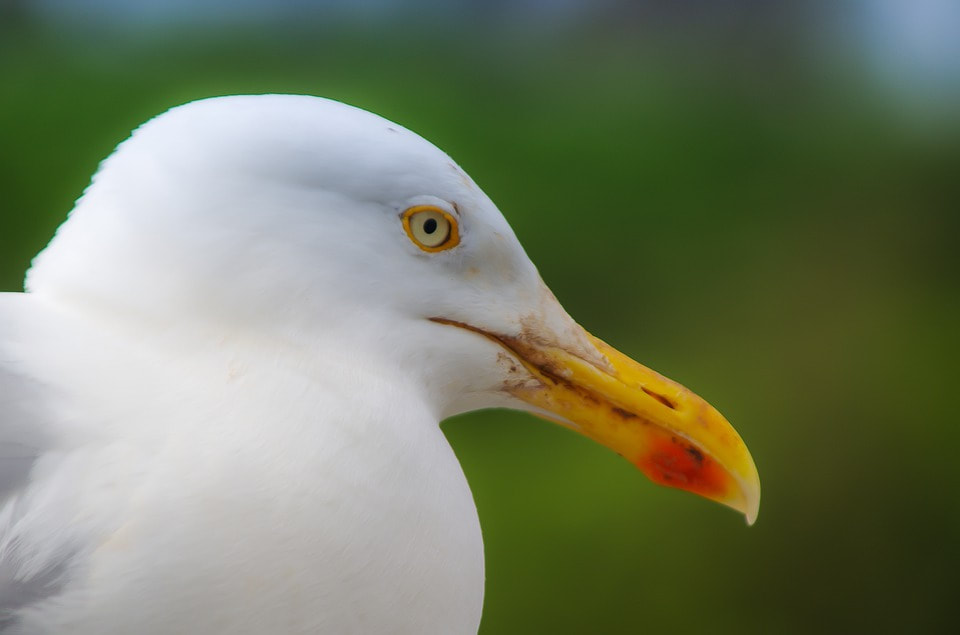Cautious Welcome As Natural England Refuses To Issue Lethal Control Licences For 'Rural' Gulls14/6/2020
* Steep decline in gull populations jolts Natural England into reassessing its kill licences.
* Lethal control of gulls for conservation purposes will largely be stopped. * After two years of our campaigning, is Natural England finally waking up to a shocking reality? Natural England is turning down many applications for the lethal control of Herring gulls and Lesser black-backed gulls this year. In an official statement, the agency said that it is "unlikely that many further licences for the control of gulls for conservation purposes will be granted this year." This could be a major turnaround - and potentially a significant success for our campaign. But let's look at some details, it's not necessarily that straightforward.... Although Natural England are unlikely to grant permission to shoot gulls in rural areas - which is a very significant development - it will be "prioritising applications related to health and safety, public health and air safety." So, for example, seaside gulls labelled as 'pests' will likely still be culled as the agency bows to pressure from urban councils. While I welcome any reduction in lethal control licensing, some countryside groups are unimpressed. According to a report in The Telegraph, and republished on Yahoo, "Farmers are in uproar with Natural England for refusing to allow the shooting of seagulls". The report cites a group of rural organisations who claim that "only one farmer has been given permission despite hundreds of requests". The Telegraph says that "only 600 herring gulls and 900 lesser black-backed gulls can be killed under licence this year", compared with many thousands in previous years. It goes on to quote Natural England as saying that 713 individuals have applied to control Herring gulls, and 487 for Lesser black-backed, of which 10 have been granted so far. If this is true then a quick calculation suggests that Natural England is issuing licences to less than 1% of applicants, at least where it comes to some species of gull. It would be interesting indeed to see how this refusal of gull licences is reflected across other species. Because a decrease in licence approvals would contrast starkly with the situation from 2018 when I was told by Natural England's operations director that the agency basically approved 80% of licence applications (across all species of birds and mammals), refusing a mere 20% of requests it received. Incidentally, the farmers are 'in uproar' because they say that the gulls are threatening vulnerable species, such as ground nesting birds. According to the report, there have been claims from some countryside groups that gulls are even "attacking lambs and their mothers". Doubtless many farmers really do care about the welfare of ground nesting birds and indeed animal welfare - but cynics might suggest that for some landowners there may be other less virtuous reasons for wanting to control and manage birds in the countryside. According to the report, Marian Spain, Natural England's chief executive, said that both Herring and Lesser black-backed gulls had 'declined significantly in recent years' and were now considered at risk. This statement seems unbelievably crass given the mindbogglingly high numbers of gulls which Natural England has sentenced to death through its gung-ho granting of kill licences over the past few years. Natural England has, in my opinion, been complicit in the sharp decline of some species of gull. Meddling, as Natural England does, in 'conservation', by granting permission to shoot tens of thousands of gulls in past years, it has itself added to the pressure on these species and hastened the birds' decline. Marian Spain added: “It’s essential that we do all we can to reverse this worrying trend. This means placing a limit on numbers that can be killed." The agency's newly discovered concern for these species was echoed by David Slater, Natural England's director for wildlife licensing. In a recent blog post he pointed out that Herring gulls have declined by some 60 per cent , and Lesser black-backed gulls by 48 per cent in rural areas. He added that "It is therefore unlikely that many further licences for the control of gulls for conservation purposes will be granted this year. " This reassessment of gull control licences is long overdue, even though it might be too little and perhaps too late. But it's a welcome turnaround nevertheless and a sign that there may be changes afoot at Natural England. Since our campaign started, our main aim (alongside calling for more transparency and accountability from Natural England), has been to cut the number of licences that are issued each year, a figure that had spiralled out of control. We have now succeeded in persuading Natural England to publish the licensing data annually, so that we the public can peruse and examine the statistics, and hold Natural England accountable where we feel it is necessary. Now, with the refusal to issue lethal control licences for gulls, it looks like our efforts are reaping rewards. It's early days, but if Natural England really is starting to significantly limit the number of licences it issues, then we might be on the verge of seeing all of our hard work come to fruition.
37 Comments
|
If you appreciate what I write about, please consider showing your support by buying me a virtual coffee!
Click the button below! Thanks :) Archives
July 2023
|



 RSS Feed
RSS Feed